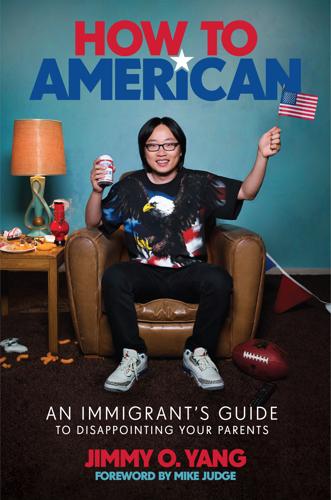
How to American: An Immigrant's Guide to Disappointing Your Parents
by
Jimmy O. Yang
Published 13 Mar 2018
my big, curly-haired American roommate explained to me, pointing at the leftover fish parts in the sink. I stared at him, confused. And I replied, “Yes, I eat the fish.” “Motherfuck!” he howled in complete frustration. The whole crew burst out in laughter. That was my second day on the set of Silicon Valley, an HBO show created by one of my comedy heroes, Mike Judge. It was my big break in Hollywood. My character, Jian Yang, is a fresh-off-the-boat Chinese immigrant whose struggle with the English language often leads to comical misunderstandings with his buffoonish roommate, Erlich Bachman, played by the impeccable T.
…
The guy from Beavis and Butt-Head is going to be the commencement speaker. It’s going to be awesome.” “The Beavis and Butt-Head guy?” The Beavis and Butt-Head guy was, of course, Mike Judge, the man who created Beavis and Butt-Head, King of the Hill, Office Space, and the man who’d eventually create an HBO show called Silicon Valley. I watched Beavis and Butt-Head when I first came to America. Even though I didn’t have a strong grasp on the English language yet, it made me laugh out loud with the way it was drawn and its weird sayings. I had no idea what Cornholio meant, but “I am Cornholio, I need teepee for my bunghole” was absolutely hilarious.
…
My neighbor must have thought I was having the best sex of my life. “But there is one thing,” Jane said. “If you do this show, you can’t do Silicon Valley anymore, because Yahoo wants you exclusively on their show.” Nothing is ever perfect, is it? I wasn’t sure if I was going to be back on Silicon Valley, but if HBO called me to be back on the second season, I knew it was something I couldn’t pass up. The first season of Silicon Valley was already nominated for the Emmys and Golden Globes; it was on its way to becoming a big hit. It meant everything for my career to book my first series-regular job, but how could I turn down a possible second season of an Emmy-nominated HBO show with Mike Judge?
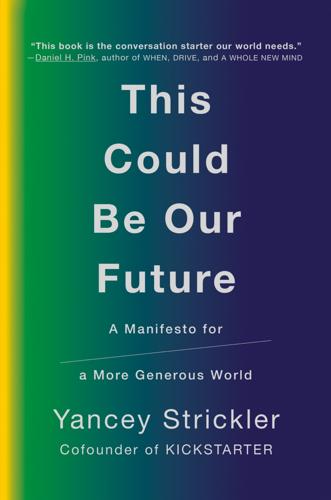
This Could Be Our Future: A Manifesto for a More Generous World
by
Yancey Strickler
Published 29 Oct 2019
The Times reported that the company’s board members had been pushing for faster growth. Though extreme, the story of Zenefits is not unusual. To fulfill the hyperexpectations that investors and others have, people run themselves ragged and take dubious shortcuts to get there. Many of the story lines on the HBO series Silicon Valley are built on this based-on-a-true-story premise. Here’s how the cofounder and ex-CEO of another celebrated “fastest-growing company ever,” Andrew Mason, formerly of Groupon, put it: Groupon started out with these really tight principles about how the site was going to work, really being pro-customer.
…
See also financial security self-coherence, 174, 201, 209, 214, 225, 243 self-interest affects other people, 127–28, 131 benefits society, 26–27, 31 broader notion of, 128, 133–34, 158, 225 and financial maximization, 134, 196 and “hockey stick” graph, 125–27, 200, 243 maximizing it, 31–32, 125–26, 130–33, 137 moving beyond it, 197 rational, 116–17, 128–30, 133–36, 146, 163, 169, 225 See also game theory self-worth, 93–95, 111, 113, 115 Semmelweis, Ignaz, 149–51 service, poor level of, 62, 67, 84 shareholders, 6, 23, 177 maximizing returns for, 70–72, 169–70 and stock buybacks, 67–70 See also economy: shareholder-centric Silicon Valley companies, 5, 95–96, 98 Silicon Valley HBO series, 96 Smith, Adam, xv, 26–27, 31, 92, 133, 151 Snow, John, 151 social responsibility, 60–61, 82, 101–3, 105, 180 services, 26, 114, 193 society, 15, 92 continuity of, 222–24 and financial maximization, xii, 197 free from domination, 238–40 and generational change, 180–84, 192 positive benefits for, 6, 25 and values, 25, 208, 210 wealth-centric, x–xi, 9, 26, 119 Songkick, 157–58, 162, 263 Soviet Union, 27–28, 31, 267 Spain, 194 specificity, 151, 162 Spheres of Justice: A Defense of Pluralism and Equality (Walzer), 237 sports industry, 159–62, 174, 179–80 Square, The, 13 Stanford, 61 Star Trek: The Next Generation, xv Star Wars, 11 start-ups, 52–54, 74, 79, 87–88, 95 status quo, 7–8, 75, 81, 98, 162 stock buybacks, 23, 67–73, 77, 84, 257 students life goals of, 89–92, 94 loans/debts of, 74–75 prioritize wealth, 89–92, 105, 180 success, 23, 93–97, 100–101 Sunstein, Cass, 19 sustainability, xv, 144–45, 168, 172, 174, 211 Swift, Taylor, 175 Tarantino, Quentin, 137.
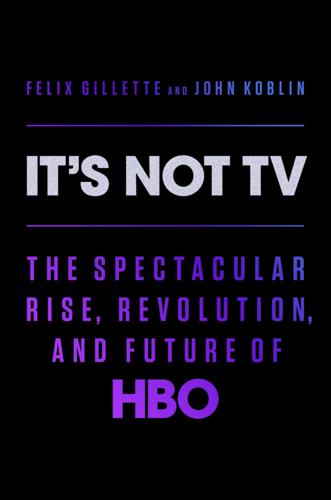
It's Not TV: The Spectacular Rise, Revolution, and Future of HBO
by
Felix Gillette
and
John Koblin
Published 1 Nov 2022
GO TO NOTE REFERENCE IN TEXT “If you look at the history”: “Comedy Master Class with Casey Bloys and Jenni Konner,” Banff World Media Festival, June 27, 2016, https://www.youtube.com/watch?v=7jVOLp_DRtY. GO TO NOTE REFERENCE IN TEXT Afterward, Tesla’s Elon Musk: Nellie Bowles, “At HBO’s Silicon Valley Premiere, Elon Musk Has Some Notes,” Recode, Vox, April, 3, 2014. GO TO NOTE REFERENCE IN TEXT Some critics would: Esther Breger, “The Boring Sexism of HBO’s ‘Silicon Valley,’ ” New Republic, May 30, 2014. GO TO NOTE REFERENCE IN TEXT In June 2014: Hadas Gold, “Rupert Murdoch’s Failed $80B Bid for Time Warner,” Politico, July 16, 2014. GO TO NOTE REFERENCE IN TEXT When news of the rebuffed effort: Andrew Ross Sorkin and Michael J. de la Merced, “Murdoch Puts Time Warner on His Wish List,” Dealbook, New York Times, July 16, 2014.
…
“If you were a young dude in your twenties or thirties, you’d have thought you had died and gone to heaven,” says Dave Baldwin, a boisterous, bearded ex–school librarian who for years ran HBO’s scheduling department. “People back then were either single or about to become single again.” Decades before tech companies in Silicon Valley adopted the technique of throwing over-the-top, celebrity-infused company parties to brand themselves, HBO used its fun-loving reputation to gain a competitive edge recruiting new employees fresh out of the country’s top business schools. For Linda Frankenbach, a graduate of Columbia University’s Business School, choosing between HBO and a traditional job in banking or finance was an easy call—she joined HBO and stayed there for a dozen years, working primarily in affiliate sales and marketing.
…
When HBO did not love their first stab at satire, Krinsky and Altschuler stepped aside. Judge reworked the humor with the help of Alec Berg, a former writer on Seinfeld and Curb Your Enthusiasm, and things fell into place. Casey Bloys, HBO’s genial head of comedy, was a major champion. He felt that Silicon Valley had the special ingredient that was baked into most of HBO’s successful comedies. “If you look at the history of HBO, in comedy specifically, we’ve always done really well with writer-performer-directors,” Bloys said. Bloys believed the key was getting at least two of the three categories.
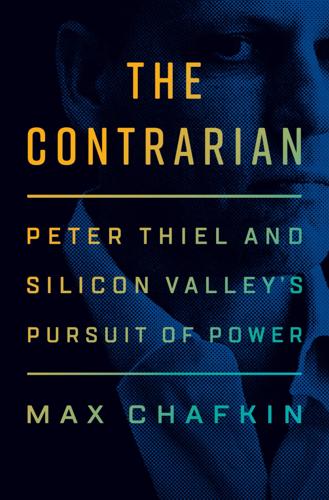
The Contrarian: Peter Thiel and Silicon Valley's Pursuit of Power
by
Max Chafkin
Published 14 Sep 2021
There was always a chance that he would push things too far, either by supporting something, or someone, truly odious and would be unable—or, more likely, given his impulses, unwilling—to pull back. For the most part, his reputation within the broader world had never been better. On HBO’s tech industry send-up, Silicon Valley, which premiered earlier that year, he’d been lovingly portrayed by Christopher Evan Welch as an out-of-touch but brilliant investor. In an early scene, the Thiel character—who is known in the show as Peter Gregory and who shares Thiel’s affectless demeanor, his love for seasteading, and his disdain for elite universities—is successfully manipulated by a promising engineer who threatens to go to back to college.
…
He suggested that he’d considered injecting young blood as part of his own health regimen but noted that he had not pursued it yet. Thiel’s interest in parabiosis led to wild speculation—and lots of snark. Gawker heard a rumor that he had been paying $40,000 to get quarterly infusions from an eighteen-year-old. The following year, HBO’s Silicon Valley dedicated an entire episode to the subject, having the show’s evil corporate character, Gavin Belson, receive transfusions from a strapping “blood boy”—or as Belson described him, “my transfusion associate.” (The actor who’d played the Thiel character had died during the series’ first season, and some of Thiel’s quirks found their way into Belson.)
…
“You’re a very special guy,” Trump said, thanking Thiel for setting the meeting. Sean Parker (played by Justin Timberlake) and Mark Zuckerberg (Jesse Eisenberg) wait to pitch Thiel in the Hollywood version of the Facebook story, The Social Network. The “blood boy” episode from HBO’s Silicon Valley made light of Thiel’s interest in parabiosis, a life-extension therapy involving the use of blood from younger donors. In 2018, Facebook cofounder Mark Zuckerberg was called to testify in Congress about Facebook’s commitment to user privacy and its involvement with 2016 election manipulation.
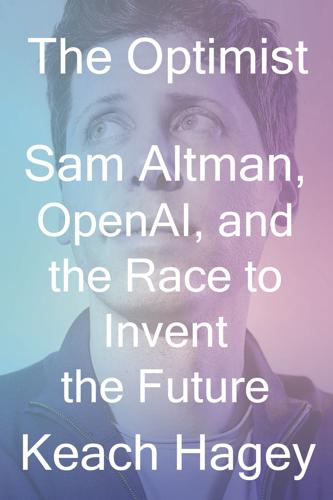
The Optimist: Sam Altman, OpenAI, and the Race to Invent the Future
by
Keach Hagey
Published 19 May 2025
Louis, 26, 53 Delicious (website), 75 Deming, Peter, 59–60, 64 democracy, 152–53, 225 Democratic Party, 21, 204, 207–8, 234, 296 Deployment Safety Board (DSB), 279–80, 287 Deshpande, Alok, 58–61, 64, 76, 85, 89, 102, 111, 127 Deshpande, Sheila, 58, 91 Desmond-Hellmann, Sue, 303 Deutsch, David, 314–15 Dewey, John, 45 deworming charities, 211, 213 Diamandis, Peter, 144, 210 diffusion model trained by adding digital “noise,” 262–63 Digital Chocolate mobile gaming company, 97 Diller, Barry, 229 Ditton, Andy, 34–35 DJ Kay Slay, 102 DJI drones, 231 DLA Piper lobbying firm, 300 DNNresearch, 182 Doblet phone-charging startup, 149, 177 Dodgeball location-based app, 104, 105, 118 Donahue, Nick, 260–61 Dota 2 (video game), 215–18, 221–22, 242, 284 dot-com bubble of the late 1990s, 73, 87, 93 Dowling, Steve, 287 Dropbox, 123, 139, 150, 152, 157, 158–59, 247 drop-outs, tech bros as mostly, 62, 88, 91–92, 96, 108, 113, 124, 132, 175, 179, 217–18 Dubai, 274 eBay, 82, 168 economic growth democracy and, 152–53, 225 dot-com bubble of the late 1990s, 73, 87, 93 financial crisis of 2008, 4, 116–17, 131, 137, 150 as a kind of spiritual hack, 153 real wages, 132 Edge web browser, 272 Edison, Thomas, 46 effective altruism, 2, 4, 6 189–214, 224, 265–66, 276, 300 “bed nets” era of, 212 deworming charities, 211, 213 GreaterWrong forum, 301 Open Philanthropy Project, 213–14, 241, 266–67, 276–77, 299–301 see also AI safety Effective Ventures, 276 Efficient Market Hypothesis, 144 Eichler, Mike, 30, 40 80,000 Hours, 211–12 Elbaz, Gil, 243 Electronic Arts, 97 Electronic Frontier Foundation (EFF), 59, 98 energy production, 13, 134, 231, 280, 313–14 nuclear energy, 12–13, 57, 108, 134–36, 154, 177, 205, 230, 259, 280 solar energy, 28 see also compute Enigma machine, 139 Enlightenment, 314–15 Enron, 60 esports, 215–16 Evans, Jon, 142 Extropians, 141–42, 144–45, 164–65, 199, 214 Fabolous (DJ), 102 Facebook, 60, 63, 73, 79–80, 96, 101, 116–17, 123, 127, 131, 137, 161, 169, 184, 188, 204, 207–8, 229 fact-checking, 265 Fairchild Semiconductor, 72, 87 fake news, 265 Federal Communications Commission (FCC), 59, 106 Federal Trade Commission, 285 Feldman, Ellen, 173 Fellow Robots robotics company, 210 Fermi’s paradox, 170 “few shot” learning, 244 “Feynman method of being a genius,” 219 Filan, Daniel, 305 financial crisis of 2008, 4, 116–17, 131, 137, 150 “finding product-market fit,” 107, 156 “finding your tribe,” 157 Finney, Hal, 142 Firefox web browser, 63 Flexport logistics platform, 138 Florida, 40 “Flowers for Algernon” (Keyes), 140 Foo Camp, 63 Forbes (magazine), 257 Foreign Affairs (journal), 267 Foresight Institute, a technology think tank, 144 Forstall, Scott, 112, 114, 116 “Founder Mode” (Graham), 263 founders as kings, 6, 60, 65, 68, 70–75, 95 Founders at Work (Livingston), 63, 64 Founders Fund venture firm, 2, 6, 132, 139, 147, 226 Foursquare, 118–20, 126 Francis, Peggy, 32, 36 “Free Oceana,” 141 Freemasonry, 31 Fridman, Lex, 17, 304 Friend, Tad, 201 From Zero to One (Thiel and Masters), 132, 230 frontier in American history, 153 FroSoCo (short for Freshman Sophomore College), 55, 57 FTX crypto market, 212, 257 Furstenberg, Diane von, 229 Future of Humanity Institute, 5, 165–66, 241–42, 267 Future of Life conference, Puerto Rico (2015), 167–70, 207, 211 Future of Life Institute, 145, 168, 208–9, 272 Galef, Julia, 225 Galois, Évariste, 174 game theory, 166, 285 Gates, Bill, 65, 90, 212, 216, 267–68 Gates, Melinda, 212 Gauss, Carl Friedrich, 174 Gawker Media, 137, 204–5 gay marriage rights, 56, 296 Gay Straight Alliance, 52 Gaza, war in, 289 GE (General Electric), 210 Gebbia, Joe, 263 Gebru, Timnit, 252–53, 270–71 Gemini AI model, 307 general artificial intelligence (AGI), see AI (artificial intelligence) generative AI, 1, 3, 9, 219, 221, 270 generative pre-trained transformers (GPTs), 3, 221, see also various GPTs under OpenAI genius, human, 77, 81, 127, 140, 156, 219 “Gentle Seduction, The” (Stiegler), 199–200 George, Henry, 256 Georgia, 23–25, 58, 104, 142 GeoSim 3D modeling company, 209–10 Germany, 274 Gibney, Bruce, 132–33 Gibstine, Connie (Sam’s mother), 15, 31–38, 39–50, 53–54, 91, 201–2, 227–28, 248–50, 261, 295, 312 Gil, Elad, 136 Gillette, 62, 71 Ginsberg, Allen, 166 Girard, René, 131 Github Copilot, 262 Gittell, Ross, 35 GiveWell, 212–13, 266 Giving Pledge, 212 Giving What We Can, 211 global positioning system (GPS) chips in mobile phones, 57–58, 99 Gmail, 123, 150, 286–87 Go (game), 191–92, 216–17 “godfathers of AI,” 188, 312 Goertzel, Ben, 145 Goetz, Jim, 88 Goldman Sachs, 59, 64, 150, 225 Good Ventures foundation, 212–13 Google AdSense, 243 Alphabet, 194, 271 “Attention Is All You Need” (“the transformer paper”), 218–19, 270 Bard conversational model, 271 Chrome web browser, 272 DeepMind acquisition, 146–48, 154, 165, 168–69, 171–72, 184, 189–94, 208, 211, 217, 221, 270 Dodgeball location-based app acquisition, 104, 105, 118, 104 Gemini AI model, 307 Gmail, 123, 150, 286–87 recent initial public offering (IPO) of, 87 YouTube acquisition, 93–94 see also Anthropic Google assistant, 271 Google Brain, 82, 169, 184, 243, 270 Google Colab Notebook, 247 Google I/O annual developer conference, 307 Google Maps, 59 Google Search, 270 Gordon-Levitt, Joseph, 210, 225 GotNews (website), 204 GPTs (generative pre-trained transformers), see chatbots; various GPTs under OpenAI Graham, Paul, 3, 13–16, 62–65, 67–76, 81–82, 94, 136, 149, 151, 186, 263 “A Unified Theory of VC Suckage,” 72–73 “Collison installation,” 246 “Founder Mode,” 263 “How to Start a Startup,” 69–70 painting’s influence on, 67–69 see also Y Combinator (YC) graphical user interfaces, 195 graphics processing units (GPUs), 176, 181–82, 219, 247, 255 Gras, Mike, 249 GreaterWrong forum, 301 Green Dot prepaid debit card company, 126–27, 133 Green-Lowe, Jason, 301–2 Grey, Aubrey de, 144, 259 Groom, Lachy, 151–52, 154, 157 Gross, Daniel, 309 Groupon, 119, 116 Guardian, The (newspaper), 220 Gurevich, Mikhail, 77, 82 Gurson, Doktor, 149, 177 Hacker News message board, 132, 151 hackers/hacking, 3, 57, 63, 68–70, 160n, 162 Haffner & Gibstine Real Estate, 32 Halcyon Molecular, 257–59 Hall, Ed, 26 Halo 3 (video game), 95, 109 ham radios, 32–33, 48 Hanson, Robin, 141–42, 144 Harder, Josh, 207 “hardware strategy, the,” 226, see also compute Harris, Kamala, 273, 313 Harris, Sylvia, 24–25 Hartford Courant (newspaper), 28 Hartford, CT, 28–29 Hartford Institute of Criminal and Social Justice, 28 Hartmann, Frank, 28–29 Harvard Computer Society, 69 Hassabis, Demis, 145–47, 169, 171–72, 192, 209 Hassenfeld, Elie, 212 Hawaii, 227, 250, 260, 295, 311–12 Hawking, Stephen, 169, 211 Hawkins, Trip, 97 HBO’s Silicon Valley, 101, 258–59 HBO’s Westworld, 199 heads, frozen, 141 Health Extension Foundation, 258 Helion Energy nuclear fusion startup, 13, 136, 207, 259, 280, 298 Helo telepresence robot, 210 Her (film), 307 Herzog, Isaac, 274 Hill, Daniel, 165 Hilton, Jacob, 265 Hinduism, 17 Hinton, Geoff, 178–84, 188, 266, 312–13 hip-hop, 102 Hipmunk travel search company, 162 HIV/AIDS, 33, 43, 49 Hoffman, Reid, 109, 172, 223, 231, 234–35, 277, 296 Hogan, Hulk, 205 Holocaust, attempted analogies to the, 135 Homejoy, 195 Horizon Institute for Public Service, 301 housing, see affordable housing Houston, Drew, 157 “How to Start a Startup” (Graham), 69–70 Howard, James, 110–11 Howl (Ginsberg), 166 Huffman, Steve, 69–70, 75, 76–78, 81, 162–63 Hui, Fan, 192 Human Advancement Research Community (HARC), 195, 197–98, 236 humans in a democratic society, 135 human genius, 77, 81, 127, 140, 156, 219 human-computer interfaces, 210 learning to truly produce knowledge, 314 neuroscience and studying the human brain, 145–48, 202 “only good for hugs or sex,” 269 their brains as the original neural nets, 181 see also chatbots Hunnewell, H.
…
This was possible, in part, because all parties had decided to keep the company in “stealth mode,” declining to put out a press release about the Series A, knowing that it would take time to land the wireless deals and build the technology that telecoms needed. They toyed with “Flipt,” but ran into trademark issues. Facebook was just beginning to take off, and there seemed to be something lucky about having double-os: Facebook, Google, and Yahoo! (and eventually, in HBO’s satirical Silicon Valley, the fictional Hooli). They kicked around a bunch of names and settled on one that sounded like an extension of its closest, indispensable partner, Boost. The name of the product they would spend the next nine months building would sound like an echo: Boost Loopt. And the company itself would change from Radiate to Loopt.
…
In 2016, Inc. magazine published an interview with Thiel, who came off as quite knowledgeable about the mouse parabiosis studies. That interview, along with later-denied reports that he was interested in a startup that sold transfusions of young people’s plasma to older patients for $8,000 a pop, helped fuel the meme that he was an “internet vampire,” a caricature that solidified after the HBO satire Silicon Valley portrayed a Thiel-like CEO taking a meeting while hooked up to his younger “transfusion associate.” (Even if Thiel did not kick the tires at Ambrosia, he has long proclaimed that he intends to fight death, and has given millions to the research of Aubrey de Grey, the Cambridge-educated gerontologist known for his Rasputin beard, fondness for beer, and insistence that aging is a disease that can be cured.)
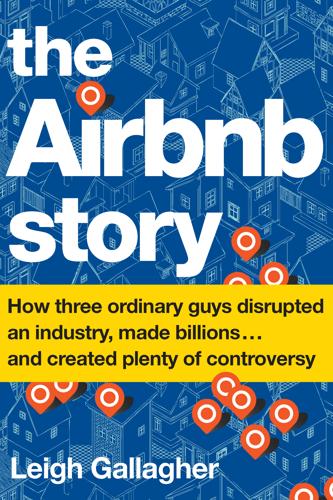
The Airbnb Story: How Three Ordinary Guys Disrupted an Industry, Made Billions...and Created Plenty of Controversy
by
Leigh Gallagher
Published 14 Feb 2017
These days, Airbnb is used by baby boomers, seniors, and so many other people—including celebrities like Gwyneth Paltrow and Beyoncé—that some of its earliest users, those who considered themselves pioneers at the cutting edge of a social experiment, now feel it has gone too “mainstream.” And, like it or not, Airbnb has captured our imaginations. It has become part of the zeitgeist. It has been a punchline on Saturday Night Live. It has been written into the plotline of HBO’s Silicon Valley. It’s been the answer to a question on Jeopardy! A romantic comedy with mistaken Airbnb host-identity high jinks as its plot device can’t be far away. It’s been used by marketers to create clever brand extensions: for a few weeks before the latest Teenage Mutant Ninja Turtles movie came out, in 2016, a listing showed up on Airbnb for the Turtles’ actual “lair,” an apartment in Tribeca the movie’s producers, Nickelodeon and Paramount Pictures, had converted into a themed hideout.
…
Almost all of Airbnb’s capabilities and much of its future potential were rooted in the vast repository of data it had accumulated about how people travel around the world. And in an instant, it was gone. “It was a massive, massive data-loss event,” Curtis says. It was like the tequila bottle resting on the delete key in the famous episode of HBO’s Silicon Valley, only it was bigger, and real, and worse, and it was an actual command typed in by an engineer (and one of the department’s stars, at that). “Blood was draining from my face,” Curtis recalls. After working twenty-four hours a day for the next few days, a small team identified a fix, and they were ultimately able to recover all of it—a process that took two weeks—but there were a few days before they found the solution when it was unclear whether there would actually be one.
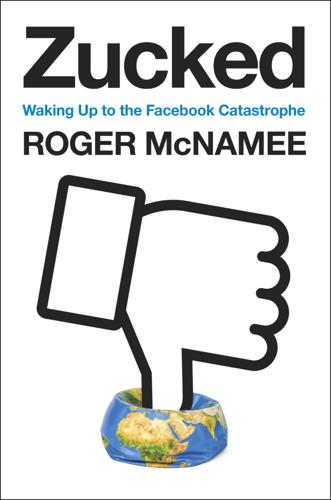
Zucked: Waking Up to the Facebook Catastrophe
by
Roger McNamee
Published 1 Jan 2019
After On, by Rob Reid (New York: Del Rey, 2017), imagines a next-generation social network whose AI becomes sentient. This is a long but incredibly funny novel that is worth every moment you spend with it. You will understand why technologists must be forced to prepare for unintended consequences. They always happen, and their impact is increasingly harmful. HBO’s television series Silicon Valley lampoons the startup culture in a way that always rings true. The plots are exaggerated, but not by as much as you might think. The Valley culture is strange. When I first met the creative team, I asked the boss man, Mike Judge, to describe the gestalt of the show. He said, “There is a titanic struggle between the hippie culture espoused by people like Steve Jobs and the libertarian culture of Peter Thiel.”
…
He holds a B.A. from Yale University and an M.B.A. from the Tuck School of Business at Dartmouth College. Roger plays bass and guitar in the bands Moonalice and Doobie Decibel System and is the author of The New Normal and The Moonalice Legend: Posters and Words, Volumes 1-9. He has served as a technical advisor for seasons two through five of HBO's "Silicon Valley" series and was also responsible for raising the money that created the Wikimedia Foundation. What’s next on your reading list? Discover your next great read! Get personalized book picks and up-to-date news about this author. Sign up now.
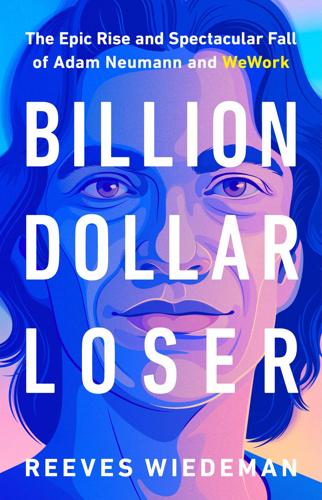
Billion Dollar Loser: The Epic Rise and Spectacular Fall of Adam Neumann and WeWork
by
Reeves Wiedeman
Published 19 Oct 2020
His mother had recently been diagnosed with the same pancreatic cancer that killed Steve Jobs, and Adam started talking more about immortality, and his interest in the emerging science aimed at staving off death. At Summer Camp 2015, the cost of which had ballooned into the seven figures, WeWork hired T. J. Miller, a comedian who played the cartoonishly boastful venture capitalist Erlich Bachman on HBO’s Silicon Valley, as well as the Chainsmokers, the popular DJ duo, whom they paid in WeWork stock. On Saturday night, Adam was in the front row, dancing with Michael Gross, when the Weeknd arrived by helicopter to play a surprise set. (Miguel performed in a talent show wearing a Sia wig and lip-synching to “Chandelier.”)
…
After the deal closed, Adam, Miguel, and Jen Berrent, WeWork’s lawyer, met with their newly acquired employees. Berrent had joined the company from WilmerHale, a white-shoe law firm, and was there to allay the concerns from Case employees that WeWork intended to claim ownership of their personal projects, which Case had encouraged them to pursue freely before. Berrent referenced HBO’s Silicon Valley, which was then in its second season. The show’s villain was Gavin Belson, an unfeeling business titan running a company called Hooli, who was constantly followed around by a spiritual guru and had recently laid claim to a piece of technology that one of his former employees had built. “Look,” Berrent said.
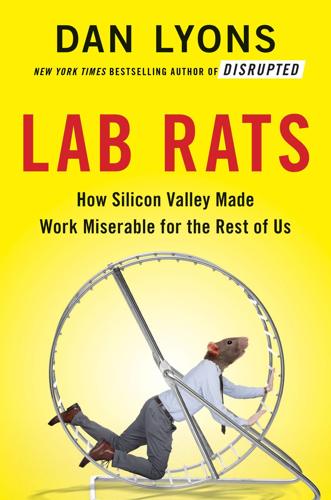
Lab Rats: How Silicon Valley Made Work Miserable for the Rest of Us
by
Dan Lyons
Published 22 Oct 2018
Soon, between sips of my caffè Americano and bites of a remarkably good almond croissant, I start tinkering with the Legos, too. A few years earlier I briefly worked at a Silicon Valley–style start-up in Boston, a disastrous experience I chronicled in my last book, before getting a job as a writer on the HBO comedy Silicon Valley. Today, I have returned to the setting of that show—which, while a real place, is also a state of mind—not for fun, but for research. For the last two years, I have made it my mission to speak to as many people as I can to better understand the modern workplace and why work today seems to make so many people unhappy.
…
They pay employees more than they have to and provide great benefits. If that means the company makes a little less profit, the founder becomes a little less rich, and the investors receive a slightly smaller return, then so be it. Making the World a Better Place For two seasons I worked as a writer on the HBO comedy series Silicon Valley. A running joke on that show was about how tech founders always talked about “changing the world” and “putting a dent in the universe,” and “making the world a better place.” We were kind of cynical about it, and rightly so, because most of the techies who talked like that were full of shit.
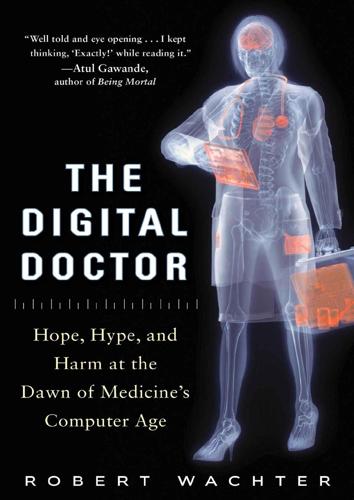
The Digital Doctor: Hope, Hype, and Harm at the Dawn of Medicine’s Computer Age
by
Robert Wachter
Published 7 Apr 2015
It will likely take two or three years. Chapter 25 Silicon Valley Meets Healthcare For thousands of years, guys like us have gotten the shit kicked out of us. But now, for the first time, we’re living in an era when we can be in charge. And build empires! We can be the Vikings of our day. —Richard Hendricks, lead character on HBO’s Silicon Valley, 2014 As you’ve seen, the people who complain that the HITECH incentive payments and the Meaningful Use regulations have locked in the incumbents also worry that they have locked out the young innovators. You know the entrepreneurial types I’m referring to—the ones who have transformed the way we buy our houses, hail our cabs, and book our travel; the ones who don’t ask for permission before they enter a market, and make no apologies when they turn it upside down.
…
Gawande, “The Velluvial Matrix,” New Yorker, June 16, 2010. 232 In May 2014, activist investor David Einhorn Lopez and Penn, “Read David Einhorn’s Brutal Presentation.” Bush rebutted Einhorn in J. Wieczner, “Bush vs. Einhorn: How athenahealth’s CEO Met His Short-Seller,” Fortune, May 28, 2014. Chapter 25: Silicon Valley Meets Healthcare 235 “For thousands of years, guys like us” “Minimum Viable Product,” Silicon Valley (television series), HBO, 2014. 235 “Our investment convinced the IT world” Interview of David Blumenthal by the author, July 16, 2014. 236 “Health IT Sees First Billion Dollar Quarter” A. Gold, Politico Morning eHealth, July 17, 2014, available at http://www.politico.com/morningehealth/0714/morningehealth14675.html. 237 a … healthcare impresario named Matthew Holt Interview of Holt by the author, August 6, 2014. 237 He became interested in technology as a kid Interview of Nate Gross by the author, August 6, 2014. 238 One was Doximity www.doximity.com. 238 The other was Rock Health www.rockhealth.com. 240 The first is called Augmedix. www.augmedix.com.
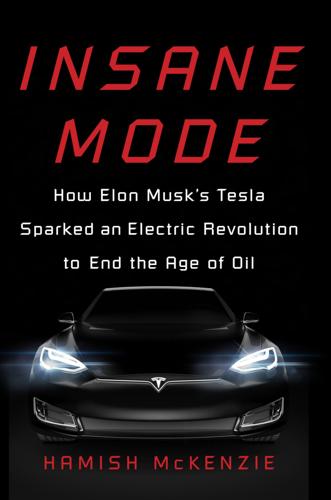
Insane Mode: How Elon Musk's Tesla Sparked an Electric Revolution to End the Age of Oil
by
Hamish McKenzie
Published 30 Sep 2017
In the next twenty years, Apple would release the iMac, the iPod, the iPhone, and the iPad. Its market capitalization would vault from $3 billion to $700 billion. But the ad also expressed and perpetuated a conviction that Californians—and Silicon Valley in particular—could change the world. It’s easy to ridicule Silicon Valley’s “change the world” pretensions, and many have made sport of doing so. HBO’s Silicon Valley, for instance, has been one of the most effective (“I don’t want to live in a world where someone else is making the world a better place better than we are,” says a chakra-channeling CEO in the show’s second season). But while unselfconsciously dweebish, the “change the world” mentality is not entirely delusional, or is, at minimum, a useful article of faith.
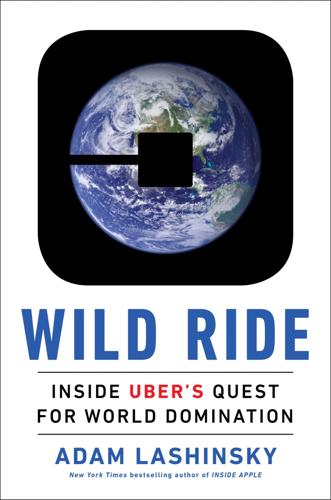
Wild Ride: Inside Uber's Quest for World Domination
by
Adam Lashinsky
Published 31 Mar 2017
If it isn’t enough that he or she has to worry about carbon emissions, social inequality, non-taxpaying coffee chains and any number of other ethical concerns, there is now the added guilt of using Uber, the smartphone app for hailing cabs.” At an industry awards ceremony in San Francisco a couple months later the comedian T. J. Miller, popular for his portrayal of the perennially stoned company founder Erlich Bachman on the hit HBO show Silicon Valley, quipped that Kalanick deserved an award for “constantly stepping in shit.” It was a precarious moment for Uber: even as its business was picking up speed its image was cratering. “They completely lost the narrative,” bemoaned Chris Sacca, the early Uber investor and adviser, who by this time had had a falling-out with Kalanick over Sacca’s attempt to buy the shares of other investors.
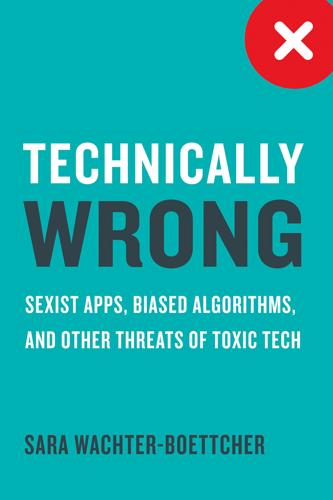
Technically Wrong: Sexist Apps, Biased Algorithms, and Other Threats of Toxic Tech
by
Sara Wachter-Boettcher
Published 9 Oct 2017
But when we start looking at them together, a clear pattern emerges: an industry that is willing to invest plenty of resources in chasing “delight” and “disruption,” but that hasn’t stopped to think about who’s being served by its products, and who’s being left behind, alienated, or insulted. . . . There’s a running joke in the HBO comedy Silicon Valley: every would-be entrepreneur, almost always a twentysomething man, at some point announces that his product will “make the world a better place”—and then describes something either absurdly useless or technically trivial (“constructing elegant hierarchies for maximum code reuse and extensibility,” for example).
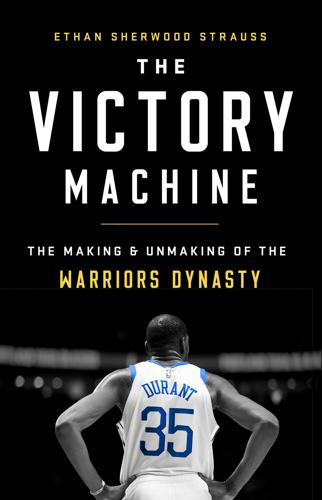
The Victory Machine: The Making and Unmaking of the Warriors Dynasty
by
Ethan Sherwood Strauss
Published 13 Apr 2020
The deal has long since been done, and the Warriors’ suffering is a distant memory. “Maybe I should eat something so I can be human,” Joe Lacob says, indicating that he just might be in on the joke. The joke, of course, is that Lacob is more machine than man, that he cannot fathom the utility of social graces, that he is a parody of the already parodic Gavin Belson of HBO’s Silicon Valley. The other billionaires in the building likely aren’t in a joking mood. We are at the Wynn casino in Las Vegas, and Lacob is about to step into the NBA’s annual Board of Governors meeting, the league’s high court of petty grievances. That ballroom will contain some twenty-odd ownership groups who’ve no hope for a championship.
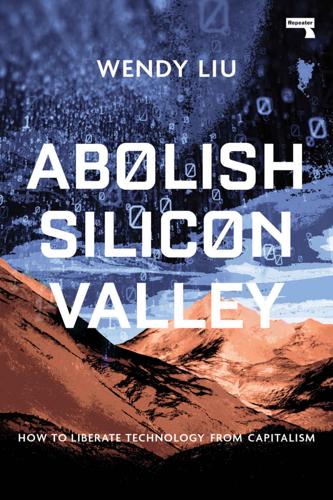
Abolish Silicon Valley: How to Liberate Technology From Capitalism
by
Wendy Liu
Published 22 Mar 2020
All we cared about was how we could dominate, with our technology being a means to the end of extracting rent from every transaction.) The summer sped by. Bulging garbage bags piled up in the kitchen and were periodically removed to reveal entire ant colonies underneath. We started communally watching episodes of HBO’s Silicon Valley, and even though I knew it was meant to be making fun of Silicon Valley culture, I still found it unexpectedly inspirational. We were working nights and sometimes weekends, convinced that success was just around the corner — as soon as we pushed this new feature or closed this promising lead.
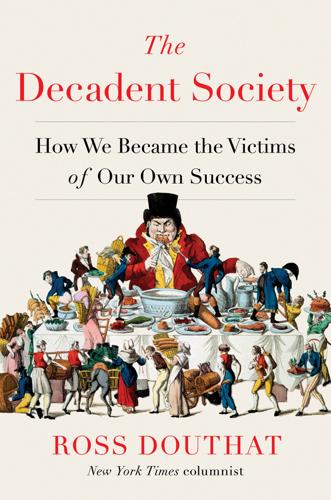
The Decadent Society: How We Became the Victims of Our Own Success
by
Ross Douthat
Published 25 Feb 2020
That could serve as the epigraph not only for the portrait of the American upper-middle class (mobbed up and otherwise) in that show but also for the portraits of the modern American city’s politics and culture in The Wire; the portrait of Washington, DC, in shows such as House of Cards and (rather less self-seriously) Veep; and other decadence-infused productions, from Breaking Bad, to True Detective, to Girls. The stagnationist, tech-skeptical view of Silicon Valley as a lot of money and ego and talent chasing a lot of essentially small ideas is also the view served up by Mike Judge’s Silicon Valley on HBO. Nowhere is Barzun’s image of a “falling-off” in Western life more vividly embodied than by Walter White and his frustrated ambitions, or Hannah Horvath and her drifting urban pals. (Something similar is true in literary fiction: its cultural currency has declined with its sales, and the breakout exceptions are often fictions—the work of Michel Houellebecq, the bad-hookup New Yorker short story “Cat Person,” the novels of Sally Rooney—that replace the old nineteenth-century marriage plot with stories about how the sexes struggle to relate to one another anymore.)
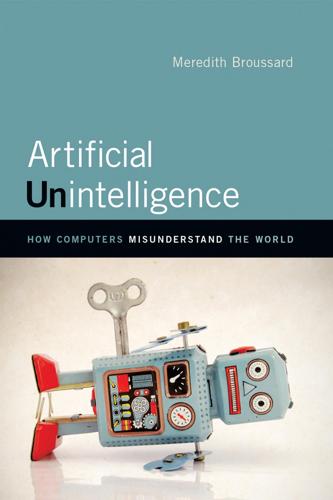
Artificial Unintelligence: How Computers Misunderstand the World
by
Meredith Broussard
Published 19 Apr 2018
Repetti agreed to invest $5,000 dollars on the condition that he could have a seat on the bus. The project launched a few months later. Bizannes, who went on to work in venture capital at Charles River Ventures, now runs the Startup Bus every year and also runs Startup House, a residential incubator for hackers like the one lampooned on HBO’s Silicon Valley. He’s also infamous for serving as a judge at the 2013 TechCrunch Disrupt hackathon, in which two participants proposed an app, Titstare, for staring at women’s breasts. They later claimed it was a joke, but given what we know about the number and status of women in tech, it didn’t read that way.
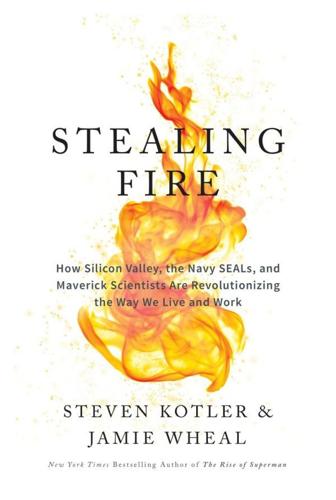
Stealing Fire: How Silicon Valley, the Navy SEALs, and Maverick Scientists Are Revolutionizing the Way We Live and Work
by
Steven Kotler
and
Jamie Wheal
Published 21 Feb 2017
Michael Michaels’: San Mateo City Innovation Week Panel discussion on the role of Burning Man in Silicon Valley culture, 2014, excerpt at https://vimeo.com/164357369 and entirety https://www.youtube.com/watch?v=b0yKsy-mWec. 3. You sink to your level of training: This quote is frequently attributed to an anonymous Navy SEAL (and often repeated by team members), but it most likely originated with the Greek poet Archilochus. “If you haven’t been [to Burning Man]’”: Nellie Bowles, “At HBO’s ‘Silicon Valley’ Premiere, Elon Musk Has Some Notes,” ReCode, April 3, 2014. 4. “So embedded, so accepted has Burning Man become”: Vanessa Hua, “Burning Man,” SFGate, August 20, 2000. 5. In 2013, John Perry Barlow, a fellow at Harvard Law School: @JPBarlow, Twitter. 6. Three years later, the actual president: “Just recently, a young person came up to me and said she was sick of politicians standing in the way of her dreams—as if we were actually going to let Malia go to Burning Man this year.
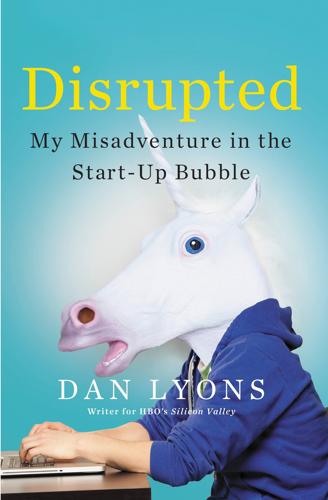
Disrupted: My Misadventure in the Start-Up Bubble
by
Dan Lyons
Published 4 Apr 2016
But no: Now it’s March 2014, and I’m roaming around the Adobe Digital Marketing Summit in Salt Lake City, fantasizing about hurling myself over the railing of the convention center and wondering whether the fall to the first floor would kill me or just leave me paralyzed, when I get a call from the 310 area code. It’s an assistant at WME. He asks if I can please hold for a guy named Ryan, whose name I remember. Back in 2010, Ryan was the assistant who placed the calls on behalf of the agents. Now Ryan is an agent. He’s my agent, apparently. Ryan says there is a new show on HBO called Silicon Valley, and they’re just about to start airing the first episodes, and my old pal Larry Charles has told the showrunner on Silicon Valley about me, and if the show gets picked up for a second season would I like to come to Los Angeles and join the writing staff? “Dude, I wish you could see where I am right now,” I say.
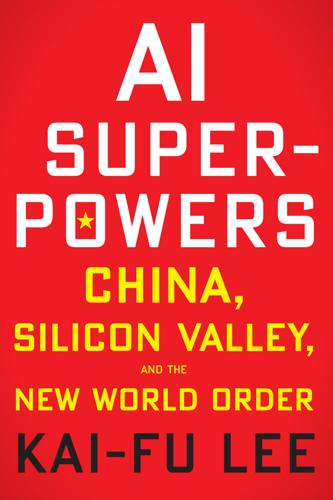
AI Superpowers: China, Silicon Valley, and the New World Order
by
Kai-Fu Lee
Published 14 Sep 2018
American startups like to stick to what they know: building clean digital platforms that facilitate information exchanges. Those platforms can be used by vendors who do the legwork, but the tech companies tend to stay distant and aloof from these logistical details. They aspire to the mythology satirized in the HBO series Silicon Valley, that of a skeleton crew of hackers building a billion-dollar business without ever leaving their San Francisco loft. Chinese companies don’t have this kind of luxury. Surrounded by competitors ready to reverse-engineer their digital products, they must use their scale, spending, and efficiency at the grunt work as a differentiating factor.

Squeezed: Why Our Families Can't Afford America
by
Alissa Quart
Published 25 Jun 2018
By day he works at Allsafe, a cybersecurity company; by night he works to take down companies like it with an anarchist group similar to the guerrilla hacker collective Anonymous. Its goal is to cancel all debt. Mr. Robot’s Alderson is given to deadpan enraged voice-overs about the horrors of the contemporary human condition. “Since when did ads infect our family albums?” Alderson said. “Since when did one become greater than ninety-nine?” This is also true for HBO’s Silicon Valley, which examines the huge gap between ramen-eating, couch-surfing, low-end tech workers and their 1 percent tech-guru overlords—the show’s main source of drama and humor. The absurd tech-titan excesses in Silicon Valley—the venture capital toga parties, the private Kid Rock concerts—are starkly contrasted with life on the lower rungs, where a desperate aspirant pitches his app to customers at the liquor store where he works.
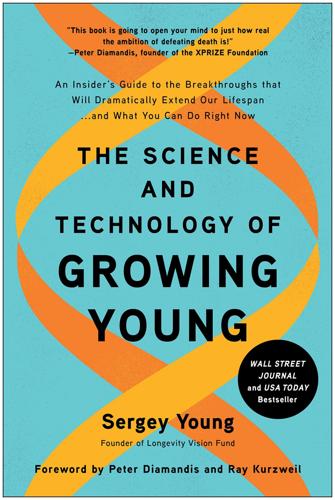
The Science and Technology of Growing Young: An Insider's Guide to the Breakthroughs That Will Dramatically Extend Our Lifespan . . . And What You Can Do Right Now
by
Sergey Young
Published 23 Aug 2021
He had lived a relatively normal life and had even continued to play his favorite sport of basketball—backpack, artificial heart, and all. NEW (AND OLD) IDEAS IN REGENERATION While some of these ideas for regenerative medicine are pretty “out there,” they aren’t even the strangest. If you are a fan of the HBO series Silicon Valley, you may remember a 2017 episode wherein antagonist billionaire Gavin Belson receives a blood transfusion from a strapping young man, right in the middle of a business presentation. This was a slightly tongue-in-cheek look at the practice of heterochronic parabiosis, more commonly known as “young blood” transfusions.
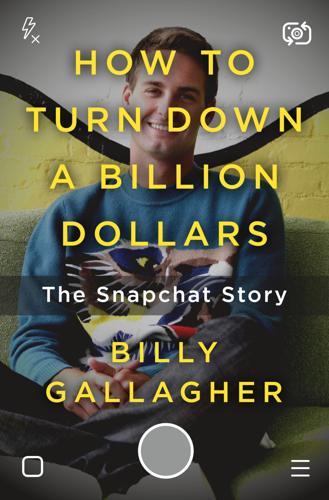
How to Turn Down a Billion Dollars: The Snapchat Story
by
Billy Gallagher
Published 13 Feb 2018
Things that don’t stay relevant don’t even get the luxury of leaving ruins. They disappear. Like any good religion, the cult-like startup world has a holy scripture: The Innovator’s Dilemma, a 1997 book by Harvard Business School professor Clayton Christensen. Christensen wrote the book before “disruptive innovation” was a punchline on the HBO comedy Silicon Valley, and it has managed to maintain its revered status for two decades. We can see the core concept of The Innovator’s Dilemma at work in Snapchat’s story: a new entrant makes a product that is so far beneath what an incumbent does that it seems silly—why would we waste our time down there?
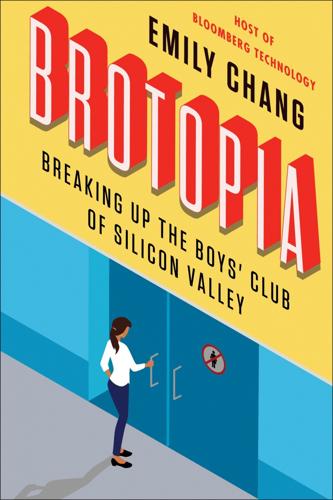
Brotopia: Breaking Up the Boys' Club of Silicon Valley
by
Emily Chang
Published 6 Feb 2018
It is not an exaggeration to say that, for a solid week in Silicon Valley, this memo was the main topic of conversation. I interviewed Damore just two days after his firing. He Skyped into our Bloomberg studio from his Mountain View apartment. He seemed a little shell-shocked by the dramatic turns his life had taken, looking a bit like Richard Hendricks, the perpetually bewildered main character on HBO’s Silicon Valley. Damore told me the reaction to his memo both internally and externally was deeply unfair. The public reaction, he said, required that he be the scapegoat. He claimed his own boss threw him under the bus. “It’s really a shame that no one in upper management could protect me,” he said. I asked Damore if he regretted writing the memo in the first place.
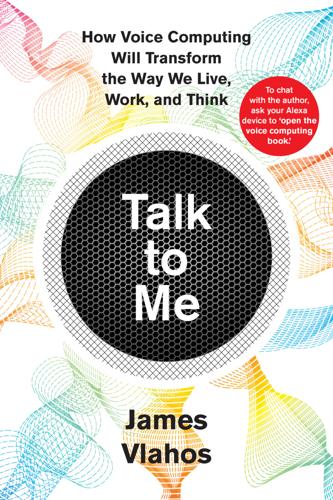
Talk to Me: How Voice Computing Will Transform the Way We Live, Work, and Think
by
James Vlahos
Published 1 Mar 2019
The film feels like Edward Albee’s The Sandbox meets Lost in Space. The computer’s stage directions were strange; for example, “He is standing in the stars and sitting on the floor.” The dialogue, in turn, jumps with non sequiturs. The movie opens with a male character—played by Thomas Middleditch of HBO’s Silicon Valley—clad in shiny gold garb pronouncing that “in a future with mass unemployment, young people are forced to sell blood.” A woman across the room from him cryptically replies, “You should see the boy and shut up.” Whether in art, business, or personal communication, the generative approach is currently becoming good enough to work when people are looking over the shoulders of computers.
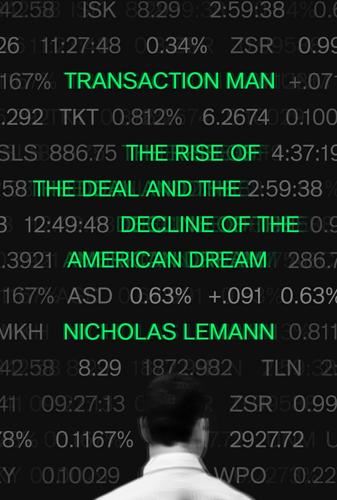
Transaction Man: The Rise of the Deal and the Decline of the American Dream
by
Nicholas Lemann
Published 9 Sep 2019
Hoffman also enjoyed spending time with people from Hollywood—especially directors and producers of fantasy-related material, like J. J. Abrams (Star Trek, Star Wars) and Joss Whedon (The Avengers)—and he served as a kind of informal consultant to Mike Judge, the creator of the satirical HBO show Silicon Valley, to help make sure all the jokes landed. He had an uncanny, even jarring ability to move seamlessly between the purely notional realm of gaming and science fiction and the intensely practical one of investing in and managing business applications of new technologies. * * * One evening in 2015 Hoffman was having dinner with one of his frequent companions, Mark Pincus, and after getting a few preliminaries out of the way (such as recaps of Hoffman’s recent meetings with the secretary-general of the United Nations and the Duke of York, and a new book he’d read called Superintelligence), Pincus, an enthusiastic, boyish-looking middle-aged man, brought up an idea he was especially excited about.
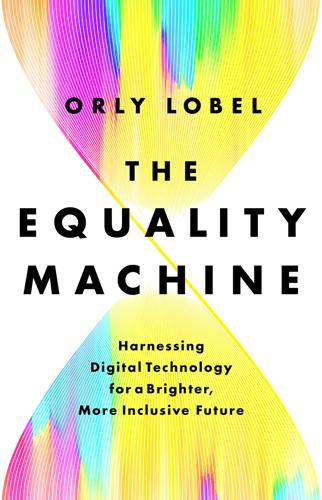
The Equality Machine: Harnessing Digital Technology for a Brighter, More Inclusive Future
by
Orly Lobel
Published 17 Oct 2022
Regardless, the image processing community recognized that Lena’s detail, color, shading, focus, textures, reflections, and flat regions made her the perfect image for testing algorithms. The Lena centerfold image blew up, becoming so prevalent in the image processing community that in 1997 Lena Forsén was a guest at the fiftieth annual Conference of the Society for Imaging Science and Technology. In the popular HBO show Silicon Valley, you can see Lena’s poster plastered on the wall of the incubator–man cave of the geeky male programmers who live and work together with the dream of becoming tech kings. Even to this day, the highest-selling issue of Playboy is November 1972. Let these facts resonate for a minute. Today’s students of computer science continue to study from journals and courses that show the image of a Playboy model as the object of imaging.
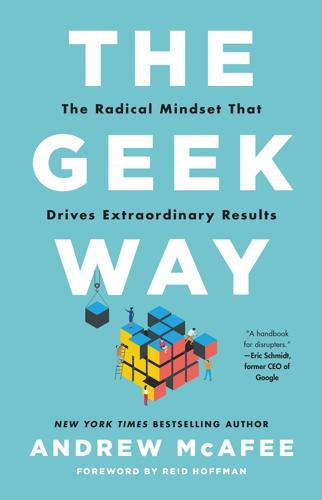
The Geek Way: The Radical Mindset That Drives Extraordinary Results
by
Andrew McAfee
Published 14 Nov 2023
Not all pivots are successful, of course, but the business geeks have realized that pivoting—being open to the idea that what you’re trying to do as a company just isn’t working and needs to change—is a smarter move than refusing to admit that your original idea was wrong and running an organization into the ground. Pied Piper, the fictional company at the center of the HBO sitcom Silicon Valley, went through a few pivots. Its original product was a music-finding app. It then got into video compression algorithms, then made servers, and eventually came up with AI software powerful enough to unlock all the world’s secrets.13 Many geeks I know watched Silicon Valley avidly (a couple even contributed to it) and thought it was hilarious.
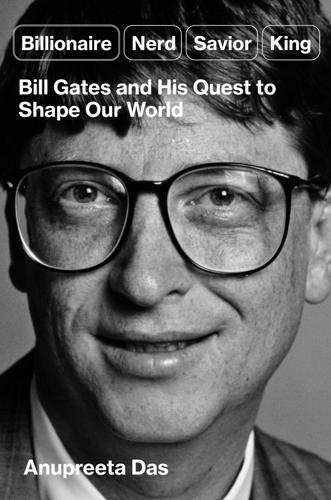
Billionaire, Nerd, Savior, King: Bill Gates and His Quest to Shape Our World
by
Anupreeta Das
Published 12 Aug 2024
The other character unleashes a series of oh-my-gods in ascending pitches. In an interview about the show, Gates said: “It’s fun to have a show where people are allowed to be a little nerdy, and a little bit smart, so I can relate to it, and I was thrilled when I got the chance.” In the HBO show Silicon Valley, a tech satire that ran from 2014 to 2019 and both parodied and idealized modern nerd culture, the protagonist, Richard Hendricks—portrayed as a skinny, neurotic, socially inept entrepreneur prone to vomiting when nervous—explains the historic opportunity for nerds: “For thousands of years, guys like us have gotten the shit kicked out of us,” he says.
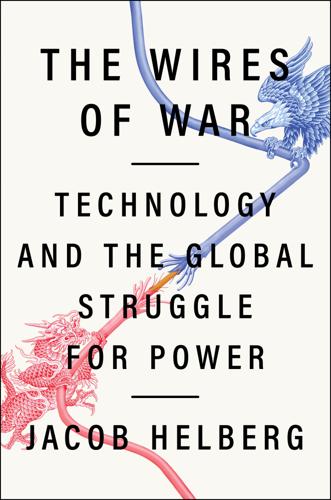
The Wires of War: Technology and the Global Struggle for Power
by
Jacob Helberg
Published 11 Oct 2021
Technologists increasingly came to view bureaucrats in faraway Washington as an overbearing Big Brother, intent on accessing every scrap of digital debris that might plausibly be connected to national security. Slowly, Silicon Valley fell from cultural grace as well. In the late ’90s, Apple’s ad campaign celebrating “the crazy ones” spoke to those who saw the global potential of tech. By the mid-2010s, shows like HBO’s Silicon Valley were skewering tech’s grandiose, world-changing rhetoric. “We’re making the world a better place through software-defined data centers for cloud computing,” one geeky CEO promises the show’s fictional TechCrunch conference. Another claims, “We’re making the world a better place through Paxos algorithms for consensus protocols.”32 Watching the show with my husband, Keith, we’d sometimes exchange knowing glances about which real-life CEO or industry mishap was being parodied.
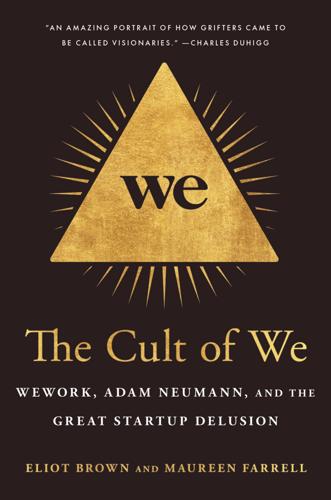
The Cult of We: WeWork, Adam Neumann, and the Great Startup Delusion
by
Eliot Brown
and
Maureen Farrell
Published 19 Jul 2021
Not only was he named 169 times, not only did the prospectus specifically call him a “unique leader who has proven he can simultaneously wear the hats of visionary, operator and innovator,” but he personally was profiting off the word “We.” Journalists, investors, and countless casual observers piled on, raising unflattering parallels to Enron, the HBO satire Silicon Valley, and Elizabeth Holmes’s disgraced blood-testing company, Theranos. “This company is not even interested in concealing its role as a medium to funnel money from investors towards Neumann’s pockets,” wrote one Twitter user. Neumann’s own phone and emails—relayed through assistants—were blowing up with questions about the payment for the trademark.
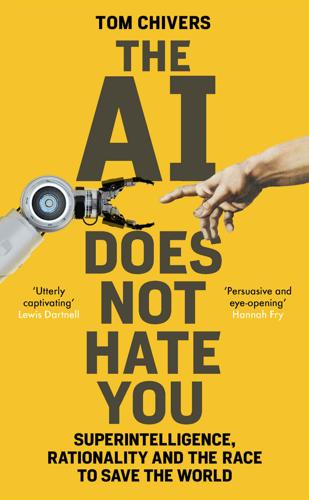
The Rationalist's Guide to the Galaxy: Superintelligent AI and the Geeks Who Are Trying to Save Humanity's Future
by
Tom Chivers
Published 12 Jun 2019
Eliezer’s not the greatest PR manager in the world, but that was really his nadir I think.’ So, from an obscure comment by an obscure commenter somewhere on a somewhat obscure blog, Roko’s Basilisk became a phenomenon. It got referred to on the enormously popular webcomic XKCD,12 to Yudkowsky’s disgust.13 There’s a Kindle novella called Roko’s Basilisk. An episode of the HBO TV series Silicon Valley referenced it; the Doctor Who episode ‘Extremis’ appears to be inspired by it. A mocking Slate column got written about it, asking ‘why are techno-futurists so freaked out by Roko’s Basilisk?’14 and describing – somewhat offensively, to my mind – the Basilisk as a ‘referendum on autism’.
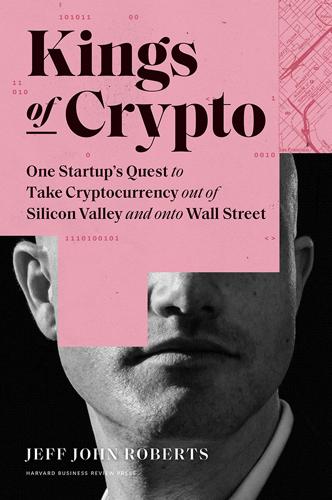
Kings of Crypto: One Startup's Quest to Take Cryptocurrency Out of Silicon Valley and Onto Wall Street
by
Jeff John Roberts
Published 15 Dec 2020
In the show Billions, the main character Bobby Axelrod, who is reportedly based on real-life hedge fund billionaire Steve Cohen, turns to cryptocurrency to thwart SEC trading restrictions. “One million dollars straight in crypto, in chilly storage,” Bobby says, proffering a USB storage device to a minion. A few days later, HBO’s tech parody, Silicon Valley, would likewise air an episode that uses cryptocurrency as a central plot point. The episode depicts a main character, Bertram Gilfoyle, plunging forward with a plan to mine and distribute “Pied Piper Coins”—tokens named for his company—through an ICO. Pied Piper Coin would earn a place in crypto lore, but it would not be the most famous fictional coin to launch in 2018.
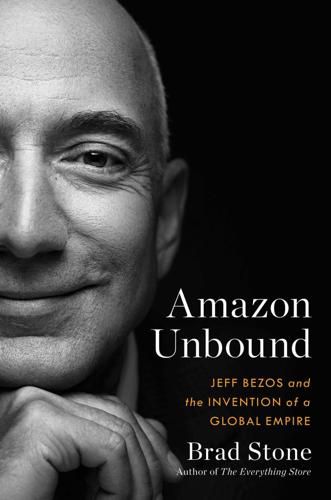
Amazon Unbound: Jeff Bezos and the Invention of a Global Empire
by
Brad Stone
Published 10 May 2021
In April 2013, two months after Netflix scored an immediate hit by debuting its first show, from the production company Media Rights Capital—the political drama House of Cards—Amazon unveiled its first so-called “pilot season.” Customers could sample fourteen pilots. The political comedy Alpha House (operating in the same vein as HBO’s subsequent, funnier Veep) and a dot-com sendup called Betas (ditto for HBO’s Silicon Valley) were among those that made the cut. But when the seasons premiered later that year, they garnered media attention but gained little traction with viewers. Writers on those shows received positive feedback from Amazon, but later expressed disappointment about the absence of Nielsen ratings for online shows, or any significant promotional support.
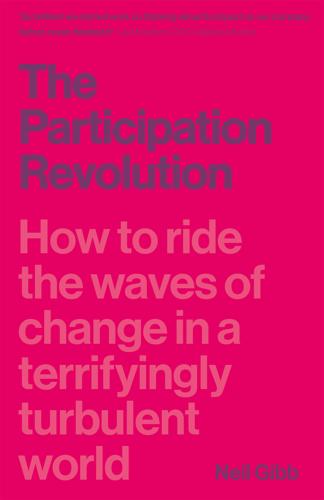
The Participation Revolution: How to Ride the Waves of Change in a Terrifyingly Turbulent World
by
Neil Gibb
Published 15 Feb 2018
The great transformation “Revolutions are inaugurated by a growing sense…that an existing paradigm has ceased to function adequately” Thomas Kuhn, The Structure of Scientific Revolutions Seventeen years after Sergey Brin and Larry Page first launched Google in their friend Susan Wojcicki’s garage in Menlo Park, California, HBO released the second season of Silicon Valley, its fictional comedy parodying the thriving industry that had grown out of those early garage start-ups. In the third episode, Gareth Belson – CEO of a company that has more than a few parallels with the one that Brin and Page had created – rather grandiosely likened Silicon Valley to Europe in the Renaissance.
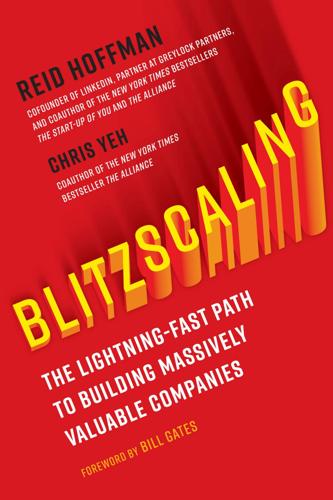
Blitzscaling: The Lightning-Fast Path to Building Massively Valuable Companies
by
Reid Hoffman
and
Chris Yeh
Published 14 Apr 2018
In fact, the same basic ingredients can easily be found in numerous start-up clusters in the United States and around the world: Austin, Boston, New York, Seattle, Shanghai, Bangalore, Istanbul, Stockholm, Tel Aviv, and Dubai. To discover the secret to Silicon Valley’s success, you need to look beyond the standard origin story. When people think of Silicon Valley, the first things that spring to mind—after the HBO television show, of course—are the names of famous start-ups and their equally glamorized founders: Apple, Google, Facebook; Jobs/Wozniak, Page/Brin, Zuckerberg. The success narrative of these hallowed names has become so universally familiar that people from countries around the world can tell it just as well as Sand Hill Road venture capitalists.
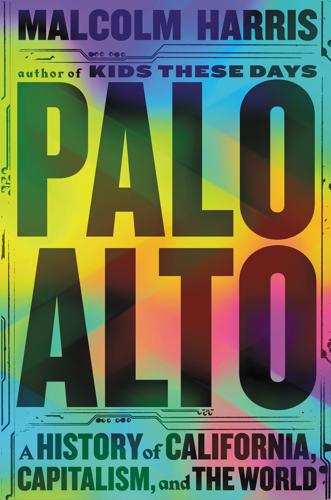
Palo Alto: A History of California, Capitalism, and the World
by
Malcolm Harris
Published 14 Feb 2023
deal opened Y Combinator, an accelerator that traded advice, connections, and a little cash to start-ups in return for shares. Theirs was the best-organized institution—angel investing as a for-profit university—but there were more casual setups, too. The fictional prototype is Erlich Bachman, the extroverted bullshit artist at the center of Mike Judge’s HBO clown-era Palo Alto satire, Silicon Valley. Bachman sold his web start-up of unclear utility—an air-travel data scraper named Aviato—to Frontier Airlines and spun his winnings into his own accelerator: a moderately sized Palo Alto house in which he rents rooms in exchange for equity in early-stage start-ups. In the real Silicon Valley, having let the market convince them of their own brilliance, these medium-fry millionaires looked for the next big thing, the one that would bump them up by a zero or three.
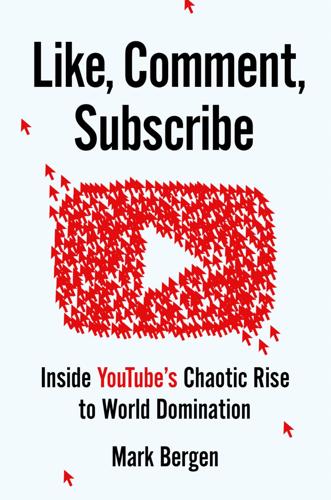
Like, Comment, Subscribe: Inside YouTube's Chaotic Rise to World Domination
by
Mark Bergen
Published 5 Sep 2022
“We’re in the middle of a big revolution with video,” the new CEO told her audience. Pharrell Williams performed “Happy” afterward. Showbiz’s center of gravity was shifting. Later that autumn Wojcicki appeared at a swanky Vanity Fair event in San Francisco on a panel with her new peers, the CEOs of HBO and the cable giant Discovery Communications. The male media honchos were in their standard Silicon Valley attire, jeans and loafers. Wojcicki wore heels and a simple silver dress. Would cable still be around in ten years? the panel moderator asked her. Wojcicki smiled slyly and answered, “Maybe.” The New York Times carried a long profile of her later that year, noting that she “has quietly become one of the most powerful media executives in the world.”
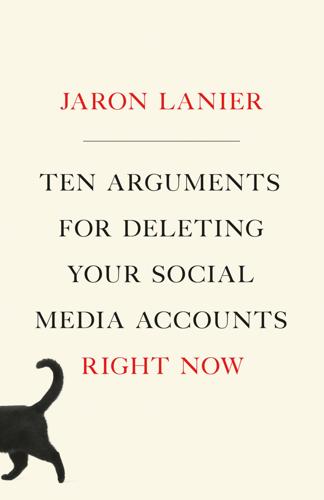
Ten Arguments for Deleting Your Social Media Accounts Right Now
by
Jaron Lanier
Published 28 May 2018
Techies who advocated a free/open future used to argue that paying for movies or TV was a terrible thing, and that the culture of the future would be made of volunteerism, with the digital distribution funded by advertising, of course. This was practically a religious belief in Silicon Valley when the big BUMMER companies were founded. It was sacrilege to challenge it. But then companies like Netflix and HBO convinced people to pay a monthly fee, and the result is what is often called “peak TV.” Why couldn’t there also be an era of paid “peak social media” and “peak search”? Watch the end credits on a movie on Netflix or HBO. It’s good discipline for lengthening your attention span!